Leora J. Goodin
I'm a blogger dedicated to sharing insights on lifestyle and wellness. Through personal stories and practical tips, I aim to inspire and empower my readers to lead healthier, more fulfilling lives.
Black Friday and Cyber Monday 2023 Deals for Motion Designers, grab it now!
Students and teachers save a massive 71% on Creative Cloud All Apps
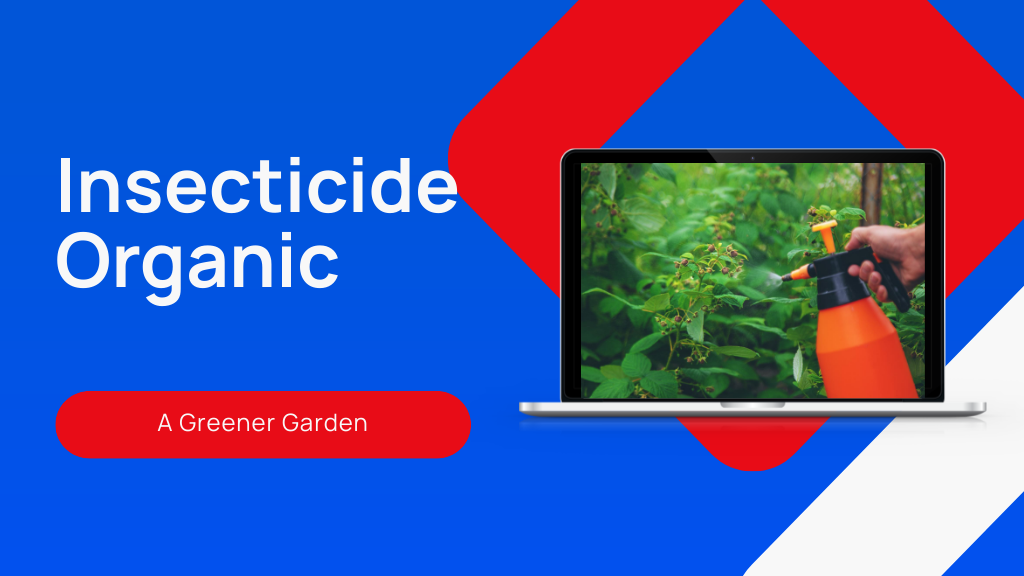
Boost your garden’s health with organic insecticides that protect beneficial insects and soil—but what hidden advantages might you still discover?

When you use organic insecticides, you protect your soil and water from harmful chemicals because they break down quickly and boost soil microbes for healthier crops. These natural products target pests without hurting beneficial insects like bees, helping maintain ecosystem balance. They also reduce pest resistance and fit well with integrated pest management, supporting sustainable farming. Plus, they lower health risks for you and the environment. There’s plenty more to discover about how they benefit your garden and beyond.
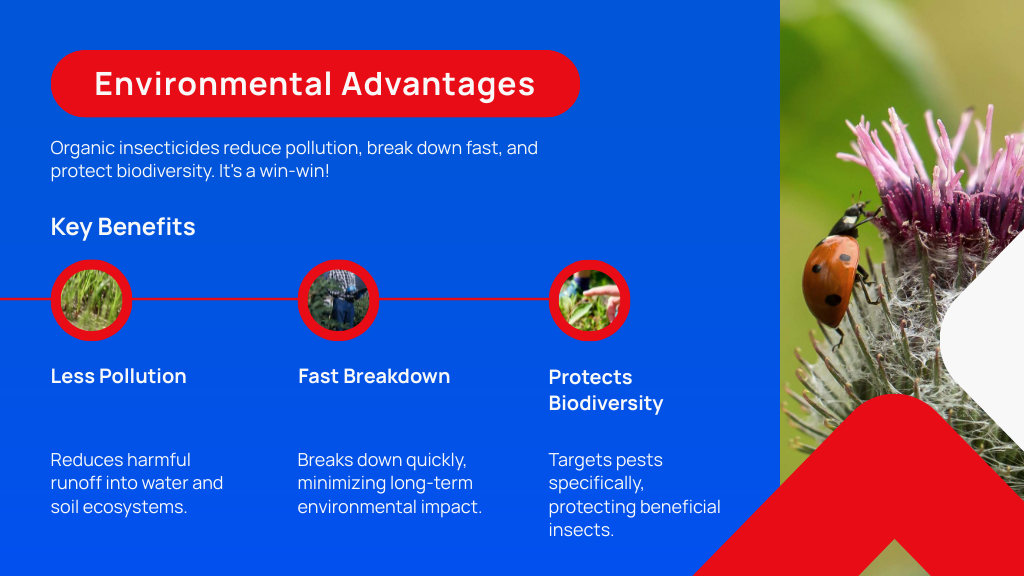
Although synthetic insecticides are widely used, organic insecticides offer clear environmental advantages that you should consider. An organic pesticide is derived from natural sources, which means it reduces chemical runoff and pollution in soil and water ecosystems compared to synthetic options.
When you use an insecticide organic in nature, it tends to break down quickly, minimizing long-term impacts on the environment. This faster degradation helps preserve biodiversity by targeting pests specifically while protecting beneficial insects like pollinators and natural predators.
Additionally, employing organic pesticide methods supports healthier soil by boosting microbial activity and lowering harmful chemical input. By choosing insecticide organic solutions, you also contribute to overall ecosystem balance and promote sustainable agricultural practices that protect the environment for future generations.
When you choose organic insecticides, you’re opting for solutions that typically pose less risk to non-target species like beneficial insects, birds, and aquatic life.
Organic insecticides, often derived from natural sources such as neem oil and insecticidal soap, specifically target pests while minimizing harm to other organisms. This selective action helps protect pollinators, improving their populations and supporting crop pollination.
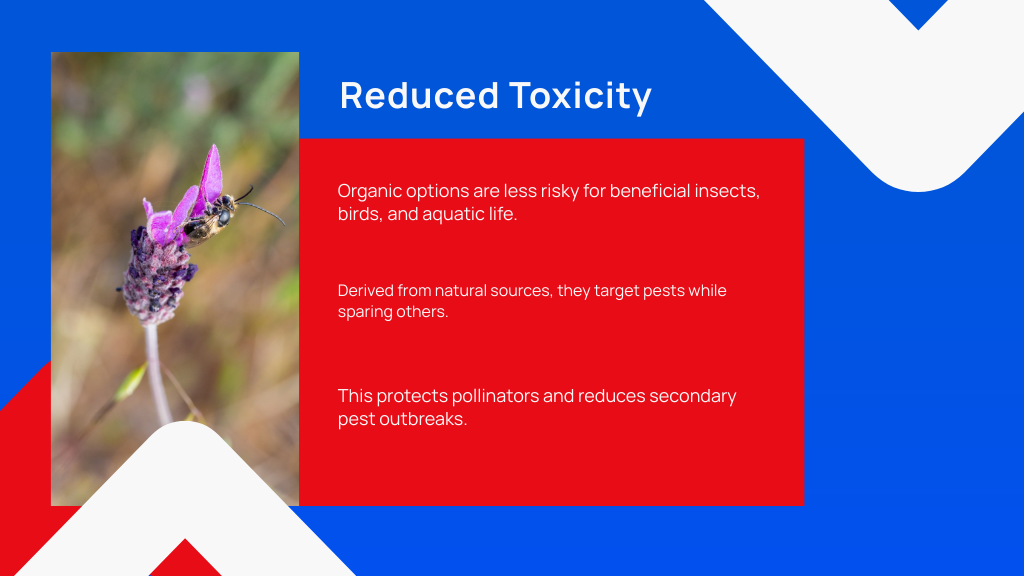
Organic insecticides target pests while safeguarding pollinators and beneficial organisms, promoting a healthier ecosystem.
Additionally, because beneficial insects remain unharmed, you reduce the chance of secondary pest outbreaks, maintaining a natural balance. Organic options also tend to break down faster in the environment than synthetic chemicals, lowering the risk of long-term toxicity.
Because organic insecticides focus on specific pests without harming beneficial insects, they help maintain a balanced ecosystem that encourages natural pest control.
When you use organic insecticides, you support populations of pollinators like bees and predators such as ladybugs, which play critical roles in keeping pest numbers in check. This targeted approach promotes greater biodiversity compared to conventional methods that often harm non-target species.
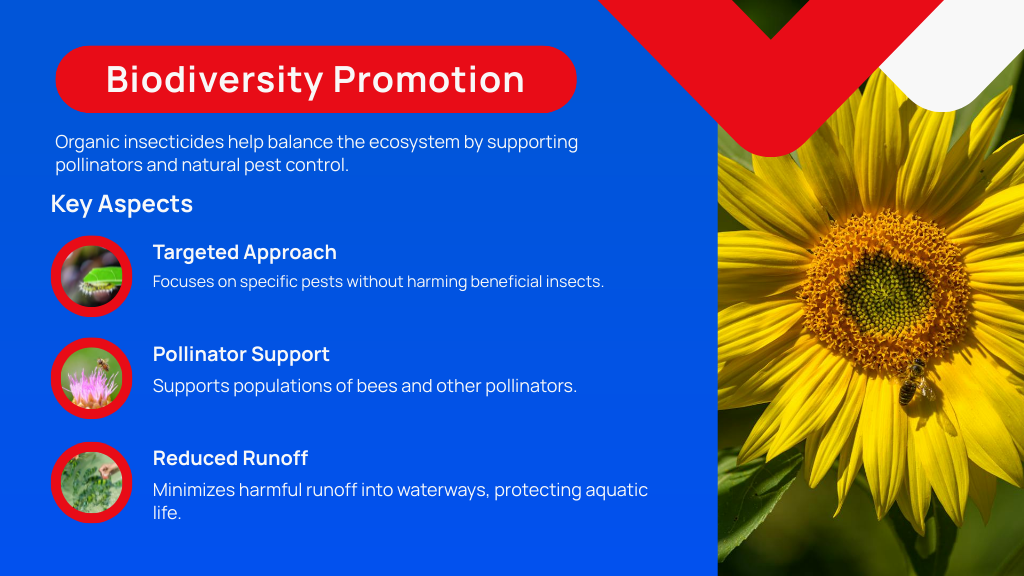
By reducing synthetic chemical use, you also minimize harmful runoff into waterways, protecting aquatic life and preserving surrounding habitats.
Ultimately, choosing organic insecticides helps create healthier agricultural ecosystems where a variety of plants and animals can thrive, making your farm more resilient and sustainable in the long run.
You’ll notice that organic insecticides do more than just control pests—they actively support soil nutrient cycling by boosting beneficial microorganisms. These microbes play a key role in breaking down organic matter and making nutrients available for your plants.
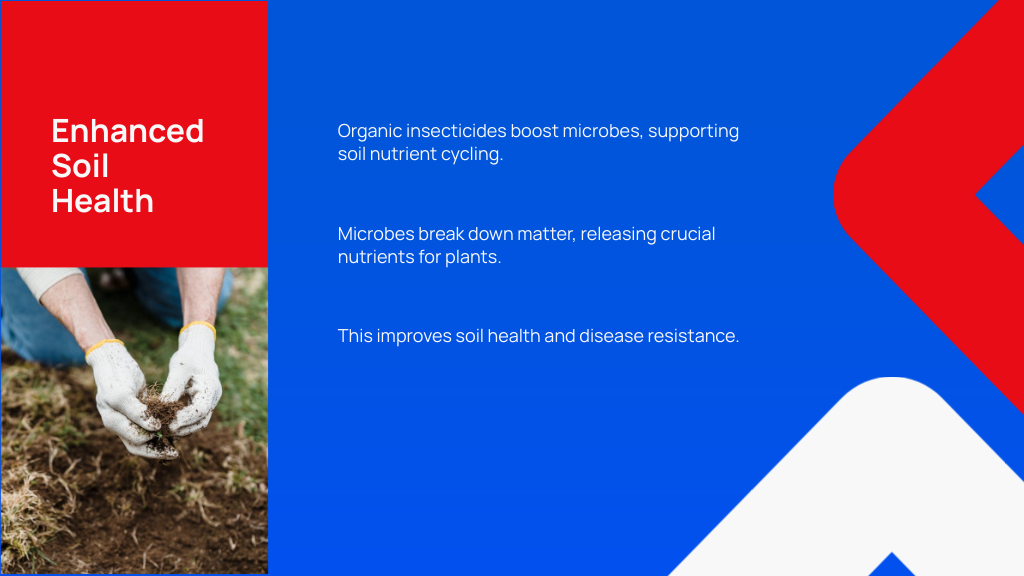
Although many gardeners focus on pest control, you mightn't realize how organic insecticides boost soil nutrient cycling by encouraging beneficial microbes.
These microbes break down organic matter, releasing crucial nutrients back into the soil, which supports plant growth and resilience. When you use organic insecticides, you’re not just managing pests—you’re improving the entire soil ecosystem.
Here’s how organic insecticides enhance soil nutrient cycling:
When you apply organic insecticides, you’re not only targeting pests but also supporting beneficial microorganisms like bacteria and fungi that play a significant role in soil health.
These microorganisms boost microbial diversity and activity, which is essential for nutrient cycling and improving soil structure. By stimulating beneficial soil microbes, organic insecticides enhance organic matter decomposition, creating a richer environment for plants.
They also help suppress soil-borne pathogens, reducing the need for synthetic fungicides. Studies show that organic insecticides increase populations of helpful microbes such as mycorrhizal fungi, which improve nutrient uptake and plant health.
Supporting this robust microbial community builds resilience in soil ecosystems, ultimately leading to healthier plants and decreased vulnerability to pests and diseases. Organic insecticides, consequently, promote both pest control and sustainable soil health.
Because organic insecticides rely on naturally derived substances, pests are less likely to develop resistance compared to synthetic chemicals. This happens because organic treatments often use multiple modes of action, making it harder for pests to adapt. Plus, organic methods encourage biodiversity, which supports natural pest control.
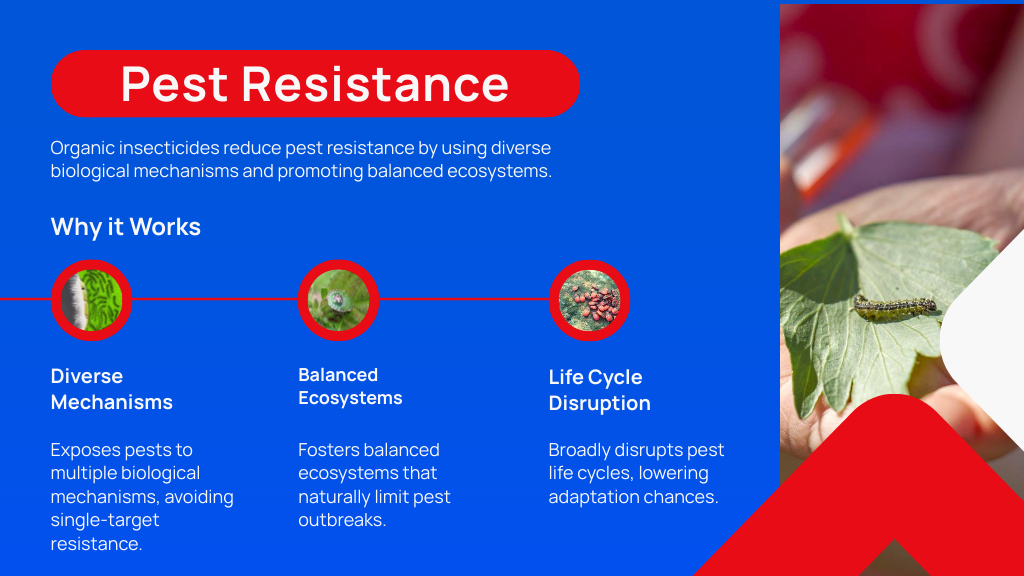
Here’s why you’ll find organic insecticides reduce resistance risk:
When you choose organic insecticides, you’re opting for reduced chemical residues on your fruits and veggies. These natural solutions break down faster, meaning less lingering on your food and a safer meal for you and your family. This enhanced food safety is a key reason many people prefer organic produce.
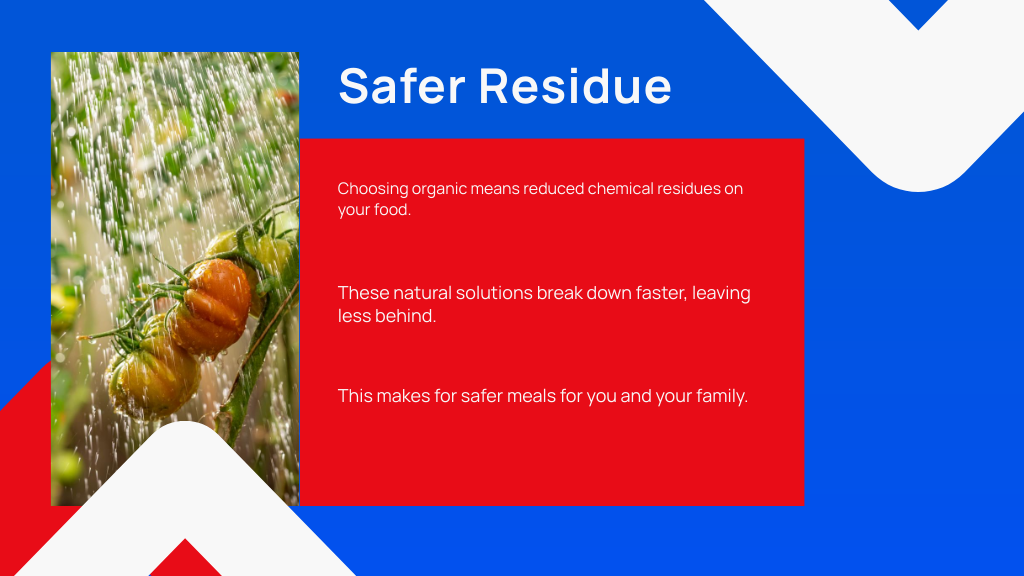
Although you mightn't always see it, the amount of chemical residue on your fruits and vegetables matters a lot for your health. Organic insecticides help reduce these residues, offering you safer, cleaner produce. Here’s why reduced chemical residue matters:
If you want safer food on your table, organic insecticides play an essential role in reducing harmful chemical residues on crops and produce.
Unlike many synthetic pesticides that can linger, organic options break down faster, resulting in lower residue levels. This means the fruits and vegetables you enjoy are less likely to carry harmful chemicals that could affect your health. The USDA’s National Organic Program enforces strict residue limits, ensuring organic produce meets high safety standards.
Studies confirm that organic farming, including the use of organic insecticides, consistently yields produce with considerably fewer pesticide residues.
Because organic insecticides come from natural sources, they break down much faster than synthetic ones, meaning you'll find fewer residues on your fruits and vegetables. This rapid breakdown reduces potential health risks and supports safer food production.
Here’s why it matters to you:
Integrating organic insecticides into your Integrated Pest Management (IPM) plan offers a balanced approach that protects beneficial insects like pollinators and natural predators.
These insecticides, such as neem oil and insecticidal soaps, target pests specifically without harming non-target species, helping maintain ecological balance. Using them within IPM reduces reliance on synthetic chemicals, lowering environmental contamination in soil and water.
You can combine organic insecticides with biological controls and cultural practices to boost pest management effectiveness sustainably. Plus, their lower risk of causing pest resistance supports long-term control strategies.
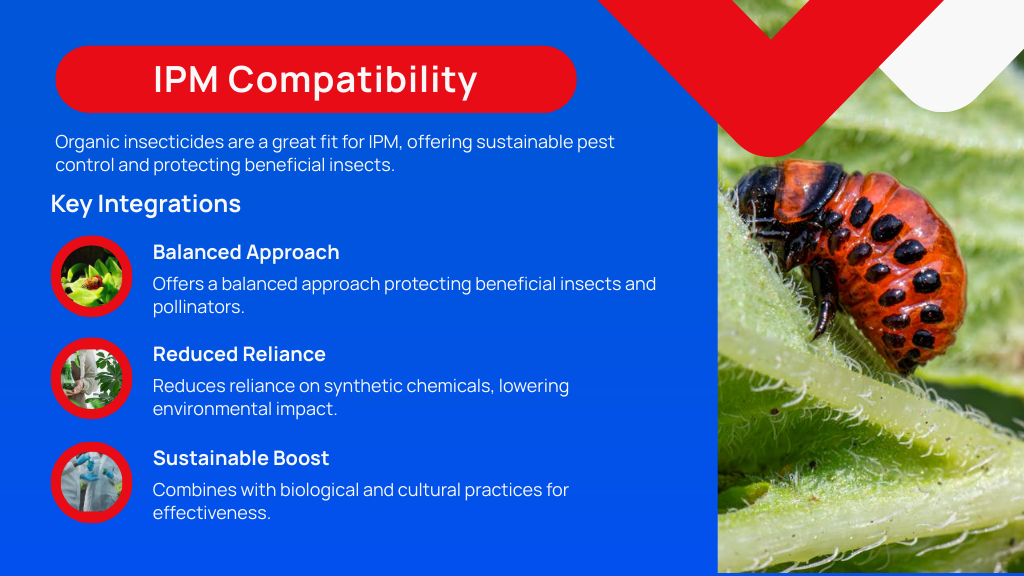
When you choose organic insecticides, you're often relying on naturally derived active ingredients from plants, minerals, or microbes that target pests precisely while sparing beneficial insects.
Organic insecticides use natural ingredients that target pests while protecting beneficial insects and the environment.
These ingredients offer several key advantages:
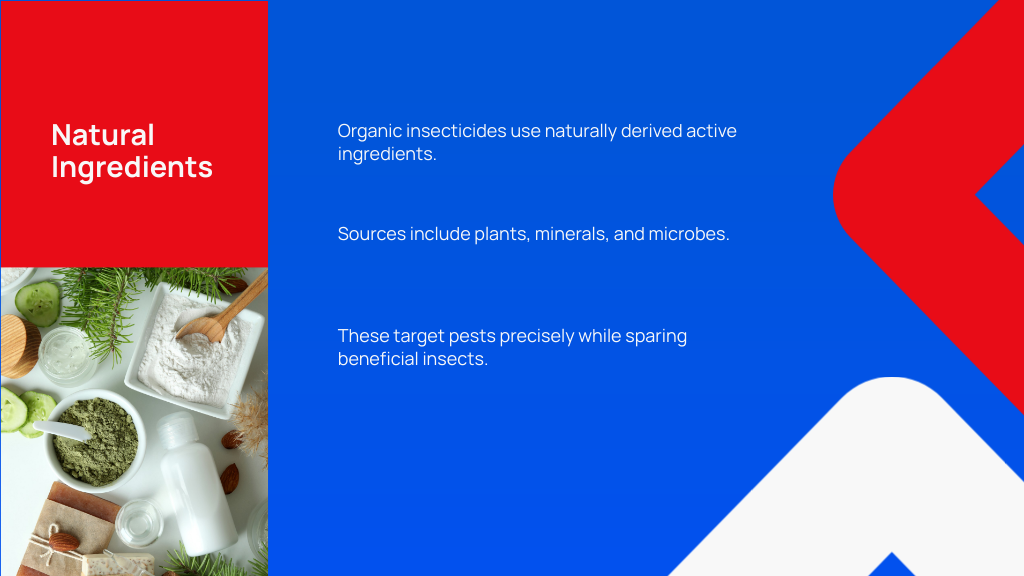
Choosing organic insecticides not only benefits individual plants but also supports broader sustainable and organic farming practices.
When you use these products, you reduce harmful chemical residues in the environment, which helps maintain healthier ecosystems and biodiversity. Organic insecticides break down quickly, so they won’t contaminate the soil long-term, enhancing soil health and fertility.
You’ll also find that these practices help prevent pesticide resistance in pest populations, ensuring more effective pest control over time. Plus, using organic insecticides aligns with the growing consumer demand for food produced sustainably, giving your farm an edge in the market.
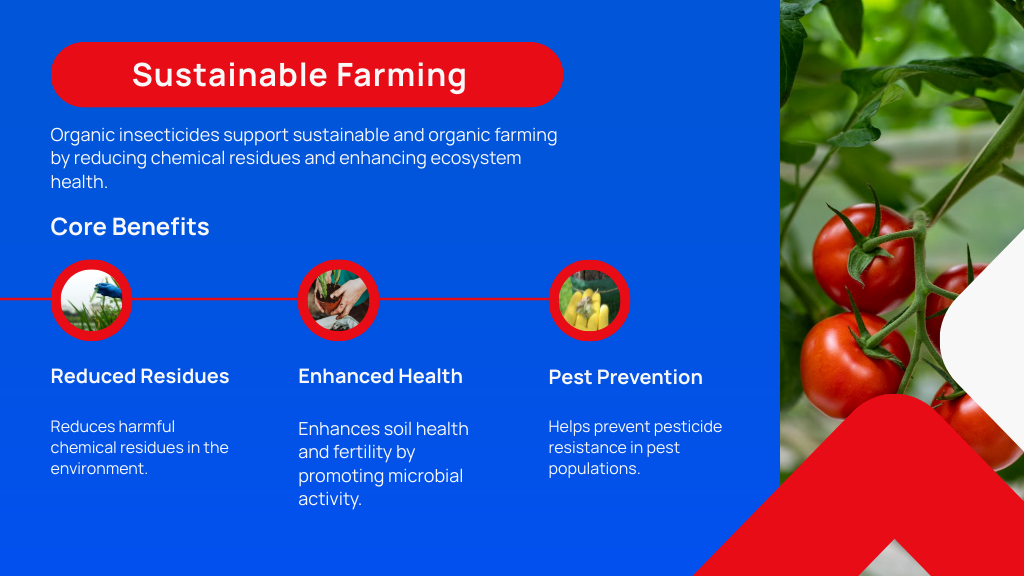
Although pest control is essential, protecting pollinators and beneficial insects is just as important for maintaining a healthy garden or farm. Organic insecticides offer a safer alternative by minimizing harm to these key species.
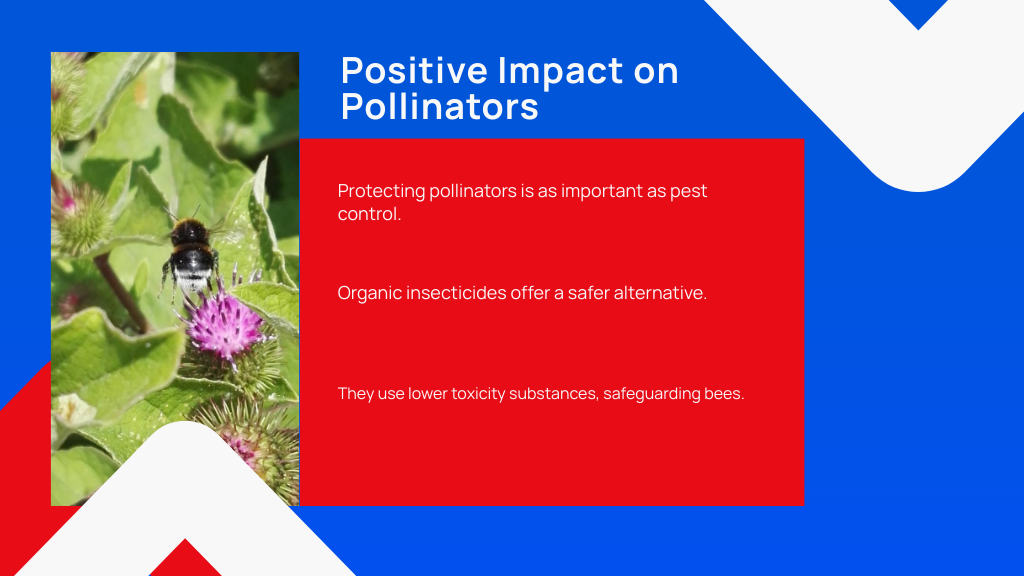
When you choose organic options, you:
When you choose organic insecticides, you’re not just protecting your plants—you’re helping the environment too. Did you know that organic options reduce toxicity to non-target species by up to 70% compared to conventional chemicals? This means healthier soil, happier pollinators, and a thriving ecosystem right in your garden or farm. Plus, they work well with integrated pest management, making your efforts more sustainable and effective in the long run.

Your email address will not be published. Required fields are marked *